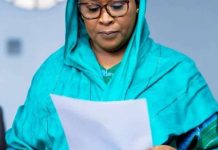Financial Analyst Gyening George Anyang has urged the Ghanaian government to hold back on any immediate retaliation following the imposition of a 10% tariff by the United States on selected exports from Ghana, warning that any hasty response could trigger unintended economic consequences.
Speaking on Morning Target on Bullet TV with Kwaku Duah, Mr. Anyang stressed the need for Ghana to adopt a measured and strategic approach, beginning with diplomatic engagement.
“We shouldn’t retaliate now,” he advised. “Yes, retaliation may eventually become necessary, but it must be well thought out. Ghana cannot afford to rush into a trade confrontation with a global economic giant like the U.S.”
He expressed deep concern about the far-reaching impact the tariff could have on Ghana’s economy, emphasizing that even a 10% increase was highly significant.
“That figure may look small, but 10% is substantial. It will raise the prices of our exports, making them less competitive in global markets, especially compared to countries not affected by the same tariff,” he explained.
According to him, the ripple effects of the tariff will likely be felt across several sectors, including employment.
“When our goods become more expensive, demand will fall. That means production could slow down, and jobs will be lost. The export sector, which is already struggling in many ways, could suffer even more,” he warned.
Mr. Anyang called for urgent but careful mitigation measures, noting that Ghana must weigh its responses wisely in order to protect the long-term interests of the nation.
“We must first explore diplomatic channels to get the tariff scrapped or reduced to a more manageable level. This is not the time to act impulsively. A trade war would do more harm than good,” he concluded.
Ghana|Atinkaonline.com|Ebenezer Madugu


























